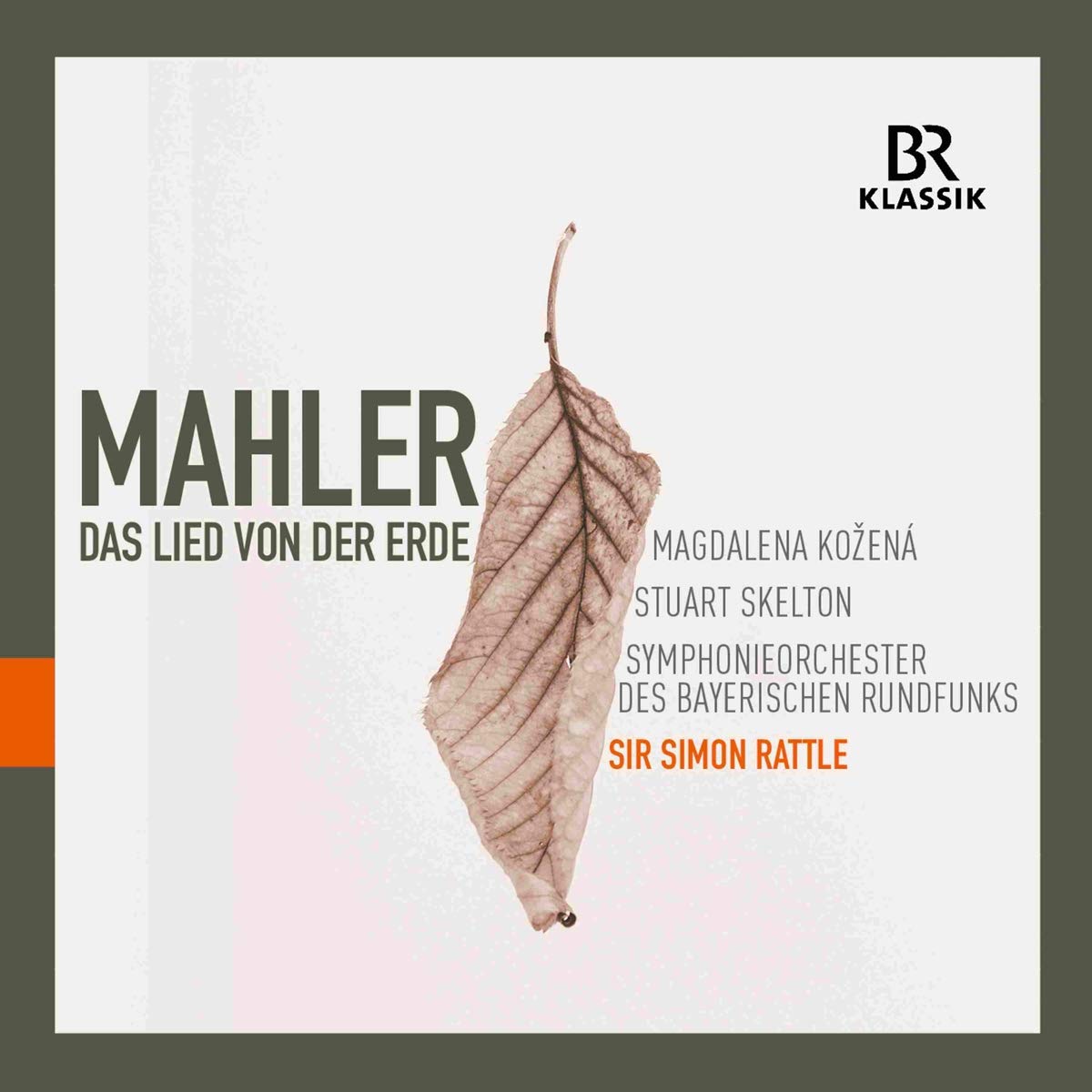Dip Your Ears, No. 257 (Rattle's Bavarian Lied von der Erde)

 Gustav Mahler, Das Lied von der Erde Simon Rattle/Bavarian Radio Symphony Orchestra/ Magdalena Kožená (mezzo), Stuart Skelton (tenor) (BR Klassik) |
Happily, this BR Klassik release of the couple’s Das Lied von der Erde stands up to scrutiny – and then some! The river-like clarity of the BR Symphony Orchestra is not of a cold, but elegant, perfection. Every instrument can be heard and every one of them is a joy to listen to. Any number of examples might underscore this, but just try the woodwinds in the opening of “Von der Jugend” for size. Rattle leads with zaftig grace and leaves no ostentatious fingerprints on the score. Kožená is not the first mezzo to sing these songs beautifully, but she really throws herself into it, in all her autumnal glory, dramatic, generous and clear, with warmth and intensity, never swooping and with splendid handling of the text. No hints of an aging voice here, as I’ve encountered on some live occasions.
But of course every Lied von der Erde stands or falls with the contribution of the ‘high’ voice’s part, the tenor. It’s the downfall of many otherwise splendid accounts when those admittedly difficult and much less grateful parts are croaked or wailed or underpowered. Meet Australian heldentenor Stuart Skelton, who actually approximates Kožená in the sonorous warmth of his portrayal, even if he does not match her handling of the text. Without following the libretto it’s occasionally a bit of a guessing game what he is singing about, but in fairness, most native speakers aren’t
Or is it? Over at ClassicsToday, you’ll find a very, very different, almost diametrically opposed #CDFromHell review of this release, which doesn’t agree with any of the above. Obviously, it sent me scurrying back to this recording, wondering if I had been deceived by headphone-listening or drunkenness. Not from what I can tell. The singers are prominently recorded, yes, which was more notable via speakers, but nothing worrisome. That said, we certainly agree on the reference versions… which you can read more about in the Lied-chapter of the ionarts-Mahler Survey.
9/9

Follow @ClassicalCritic





























































